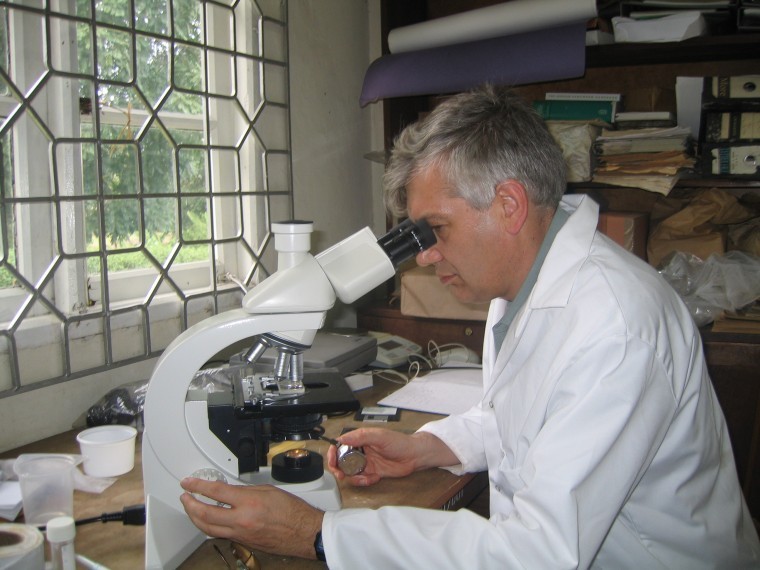Farmers are facing significant reductions in the range of chemical pesticides they can use and, with little public enthusiasm for genetically modified plants, new safe solutions for pest control are needed.
One approach is developing new biological techniques based on attacking pests with insect diseases, according to university researcher David Gryzwacz.
Mr Gryzwacz, principal scientist at the Natural Resources Institute (NRI), will outline the challenges facing food producers and potential solutions at the lecture, which will take place at the university’s Medway Campus on Wednesday 18 January.
It is the second in the Faculty of Engineering & Science’s current public lecture series.
He says: “Climate change is seeing new pests in the UK. In Kent these include the diamondback moth, which attacks such crops as broccoli, cabbage and cauliflower. We shall doubtlessly see more new pests as a result of climate change.
“The number of pesticide chemicals available to farmers has been drastically reduced as we have become far more aware of the dangers they pose to people and our environment. This trend will continue.
“For the past 20 years, much agricultural research has focused on genetic modification of plants to control pests. However, this is unacceptable to many people in the UK. It is also expensive and may not be as widely feasible as many researchers hoped.”
For Mr Grzywacz, a holistic approach using a range of biologically based and environmentally acceptable techniques, including taking advantage of insect viruses to tackle crop pests, is key.
He has already demonstrated the feasibility of viruses to control some of the most significant global pests such as the pod borer caterpillar, Helicoverpa and African Armyworm. He is also working with agricultural companies to bring other bio-pesticides, based on insect viruses, to market.
Much of his research has been in Asia, the Middle East, South America and Africa. Pests keep reproducing throughout the year in those climates making their control with chemical insecticides most challenging. As a result, farmers have recognised the value of using alternate controls such as insect viruses.
“We need to do much more applied research to develop and evaluate viruses as a pest control and develop products farmers can use effectively. Research investment needs to be more focussed into bio-pesticides and how to bring them to market for our farmers,” says Mr Grywacz.
“Without this we may have to face up to reductions in crop yields and accept produce that is more damaged,” he adds.
David Grzywacz’s lecture, Killing insects without chemicals – can we use insect diseases to control pests without harming our environment, will be held in Ward Room, Pembroke Building, from 6.30pm.
To book a place email: FES-public-lectures@gre.ac.uk or call 020 8331 9800.




